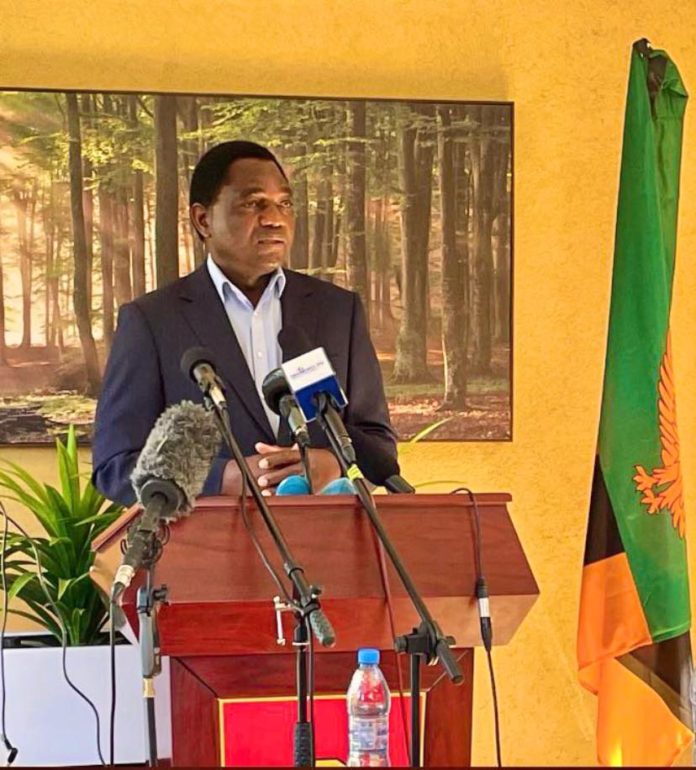Zambia’s newly elected president Hakainde Hichilema assumed office last week Tuesday as the economy showed a positive reaction to his victory over outgoing president Edgar Lungu.
The 59-year-old was declared by the Electoral Commission of Zambia (ECZ) winner of the August 12 presidential election with 2,810,757 of the votes while Lungu got 1,814,201.
Hichilema has prioritized resuscitating Zambia’s economy which struggled under the stewardship of his predecessor. Since Hichilema’s victory, the country’s currency, Kwacha, has firmed against the United States dollar.
Executive director of Panos Institute Southern Africa (PSAf) Vusumuzi Sifile told Ubuntu Times from Lusaka, Zambia’s capital, that there are high expectations among citizens following Hichilema’s victory.
“The inauguration is raising hopes among ordinary citizens because in his acceptance speech Hichilema said the right things and as he takes office, we now expect action. What is immediate for everyone is access to employment opportunities and decent livelihoods because the levels of inequality had become wider under Lungu and access to service was not balanced. We expect equality,” said Sifile.
The election had a high youth voter turnout and many unemployed youths cast their ballots wearing their university graduation gowns. Zambia also has many ethnic groups that Sifile said need a reasonable representation as the incoming president formulates his cabinet.
“One of the visible things during the election was the high turnout of youth voters who wore their graduation gowns. To the youth, Hichilema is quite interactive and uses Twitter to engage them. The youth gave him the name ‘Bally’ and we expect this online interaction to turn to offline engagement.
“Zambia has 72 ethnic groups and citizens expect a balanced representation when the president gets down to work,” he added.
A Lusaka resident who also spoke to Ubuntu Times, Joanne, said there is hope among Zambians.
“There is peace and excitement among many Zambians who are expecting a lot from the new government. The immediate expectation is the reduction in the cost of living which is currently beyond the means of many Zambians,” said Joanne.
Unemployment, corruption, and economic mismanagement were perceived as key features during Lungu’s presidency. Under his watch, Zambia became the first African country to default its loan repayment during the Coronavirus pandemic as it is currently writhing under a US$12 billion dollar external debt.

